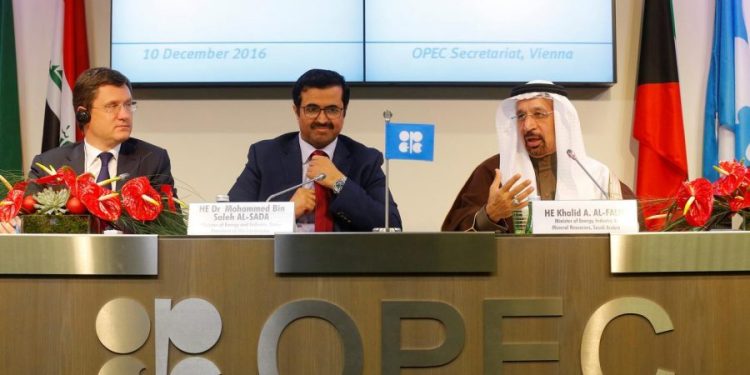A few weeks ago, talks of increasing the production of Sweet Crude turned sour as the United Arab Emirates and other member nations could not reach a unanimous agreement at the OPEC+ meeting. The United Arab Emirates presented a stumbling block to any agreement as it argued that while it supported the proposed output increase, it wanted an assurance — ahead of any extension of the underlying supply agreement. The Middle East nation reiterated that its baseline production on which the supply cuts are based would be lifted from April 2022 to account for its higher output capacity. The meeting was indefinitely postponed as all parties could not come to an agreement.
This is not the first time that OPEC+ meetings have been either unsuccessful or inconclusive as a result of a nation playing tough cookie. In the past year, different nations have made attempts to safeguard their national interests ahead of the group’s collective interests. Early last year, Russia marched out of the March meeting as Saudi Arabia initiated a price war on oil with Russia, leading to a 65% quarterly fall in the price of oil.
The price war was triggered by a break-up in dialogue between the Organization of the Petroleum Exporting Countries (OPEC) and Russia over proposed oil-production cuts in the midst of the COVID-19 pandemic. The disagreement led to the fall of the OPEC+alliance. Later both countries sheath their swords and came to an agreement which saw oil rise from negative digits to the rally we are experiencing today.
Such is the importance of agreements and alliances. Another incident of national interest played out in April 2020, as OPEC and its allies failed to comprehensively secure a deal to take a historic amount of crude off the market because Mexico balked at the suggested production cuts. Journalists labelled it the “Mexican stand-off” as the South American country created a confrontation in which no strategy existed to allow any party to achieve victory. The Mexican Secretary of Energy, Rocio Nahle said in a tweet that the country would be willing to cut production by 100,000 barrels per day for the next two months whereas OPEC+had reportedly asked for a cut of 400,000 barrels per day.
The United States, the world’s largest crude oil producer, eventually had talks with Mexico to share some of the burden in output cuts. Revenue is usually sacrificed as a result of production quotas so it is not implausible why nations are usually at loggerheads. This begs the question, does Nigeria consider their national interest when making decisions at OPEC+?
The figures above represent the millions of barrels Nigeria has produced in the past years ranging between 1.1 million to 1.5 million barrels of oil. The country which has a capacity of 2.5 million barrels has been subject to a series of quotas and compliance enforcements. Late last year, Nigeria asked for its baseline figure to be reviewed based on disagreements over the classification of output from the country’s Agbami field.
Nigeria classifies the Agbami stream as condensate, but three of the six secondary sources whose estimates feed into OPEC+ compliance levels — including Argus—count it as crude. OPEC+ declined their request as it says reviewing baseline would cause a collapse in the oil market. Mexico (1.8 million), Russia (10.5 million) and the United Arab Emirates (2.7 million) which typically produce more than Nigeria, still press for more oil production. Russia especially has had a lot of exemptions as well. Perhaps, this is made possible by the fact that the aforementioned countries have strong backup plans in either cash reserves, production capacity or strategy.
Mexico, running their hedging programmes, insure themselves against market collapses. Russia is diversifying their reliance on oil and this presents a sizable bargaining chip when entering negotiations. The UAE knows its massive production capacity means OPEC+ will be cautious when disagreeing with them. Perhaps, the fact that the OPEC Secretary-General, HE Mohammad Sanusi Barkindo is Nigerian and has strong relations in Nigeria would mean Nigeria cannot possibly deviate from OPEC’s plans. Another possible reason for Nigeria’s soft stance is any collapse in oil prices from disagreements will severely affect her revenues.
Agreeing with the OPEC herd is a result of Nigeria’s fragile economy and the dependence on oil for foreign exchange inflow. However, the West African giant should seek out opportunities to expand the country’s energy capabilities as the country has budget deficits, debts to service and a vastly poor population.
The author is not in any way promoting discord between Nigeria and OPEC but is questioning if current agreements safeguard her national interests in the short and long term.
